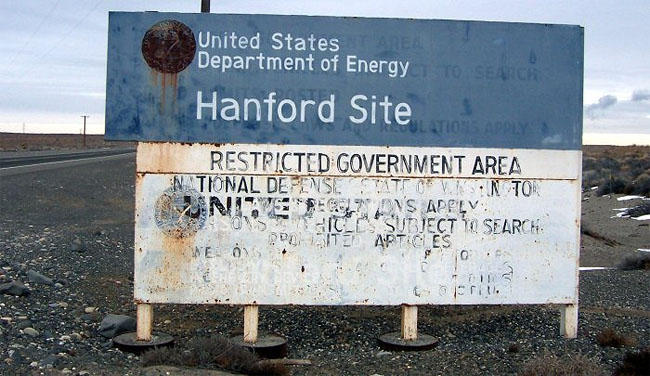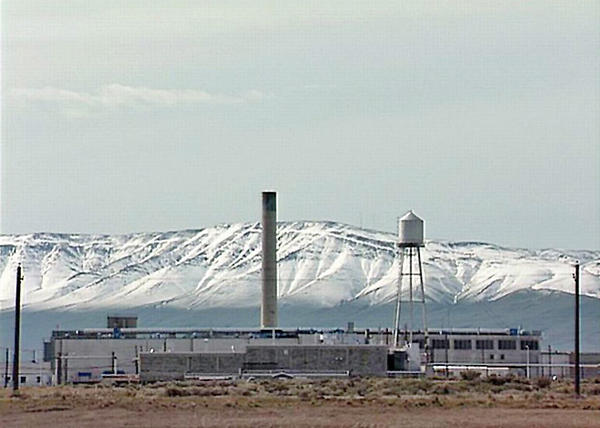
Federal Watchdog Report Says Hanford ‘Plagued With Mismanagement … Fraudulent Activities’
Read On
A fresh federal watchdog report about Hanford says after a major review, systemic fraud and inadequate oversight keep happening at the site, and it’s costing taxpayers hundreds of millions of dollars.
The report comes from the U.S. Department of Energy’s Inspector General. And it summarizes the IG’s findings from 2012-2018 at Hanford.
The IG calls on Energy to beef up oversight of federal operations and contractors at Hanford.
Hanford is a 586-square mile nuclear reservation, with massive projects to clean up radioactive waste. Everything from building a waste treatment plant to digging up contaminated soils near the Columbia River. All that work costs taxpayers more than $2 billion a year.
In the last six years, the Inspector General says it’s conducted 38 investigations and 24 audits and inspections at Hanford. This new reports draws all that together and says in part: “The Hanford Site has been plagued with mismanagement, poor internal controls, and fraudulent activities, resulting in monetary impacts totaling hundreds of millions of dollars by the various contractors involved at the site.”
The report lays out the wrongdoings in a large table. Some big names at Hanford called out include contractors working on cleanup, including: Bechtel, Washington River Protection Solutions, URS, MSA, Washington Closure Hanford and CHPRC. That’s an alphabet soup, but these are well known names of major contractors past and present at Hanford.
A few examples of fraud or mismanagement the report points out:
In 2016, when the U.S. Department of Justice announced that Bechtel, and another company now known as AECOM, made false statements and got payment for materials, services and testing that didn’t meet strict nuclear standards. This was all for the massive Waste Treatment Plant that’s being built on site to treat millions of gallons of radioactive tank waste. Those companies agreed to pay $125 million to resolve allegations under the False Claims Act.
In another case in 2013, it was discovered that two former Hanford site vendors pled guilty to offering kickbacks. The investigation found the vendors offered and provided kickbacks to at least 14 Hanford workers. The kickbacks included cash, tickets to sporting events and gift cards. Afterward, both vendors and their companies were banned from federal contracting for 3 years.
In 2016, the IG found 7 of 52 workers at Hanford’s tank farms were worried about reporting potential tank vapor exposures for fear of retaliation. The tank farms is where 56 million gallons of radioactive waste is stored in aging underground tanks.
In a statement, Energy Secretary Rick Perry said his agency has already begun implementing many of the corrective recommendations of the IG’s office. And that he has sought to end this type of waste, fraud and abuse.
Background statement from U.S. DOE: The Department of Energy welcomes the Inspector General’s Special Report on Compilation of Challenges and Previously Reported Key Findings at the Hanford Site for Fiscal Years 2012-2018, which details ongoing issues at the Hanford site. DOE believes this comprehensive report will continue to guide our ongoing efforts to hold our contracting community accountable as we work to fulfill our mission across the DOE complex. The Department has suggested the IG prepare similar reports examining historical activities at other DOE sites to better assist with our ongoing cleanup efforts.
Energy Secretary Rick Perry statement: “From day one as Secretary of Energy, I have sought to end the type of waste, fraud and abuse detailed in the Inspector General’s compilation of previous reports on Hanford. The reports have historically provided the Department with valuable recommendations, over 85 percent of which have been implemented and will serve as an important tool as we continue to aggressively address the challenges related to Hanford and our sites across the DOE complex.”
Related Stories:

Intense fire week forces road closures and evacuation notices in WA
Fire crews continue firing wildfires to keep on high alert in the Northwest.

‘We’re just getting started’ | Haaland highlights major salmon recovery effort with $16M investment
U.S. Secretary of the Interior Deb Haaland celebrated with Gov. Jay Inslee, state, local, and Native American tribal leaders break ground at the new passage facility Wednesday, July 24, 2024

Boom Town: New Northwest-made podcast explores Western uranium mining and Hanford downwinders
Creator and host Alec Cowan’s shadow during a tour of the Sunday Mine Complex, a complex of five uranium mines in the Big Gypsum Valley near Paradox, Colorado, on Feb.













